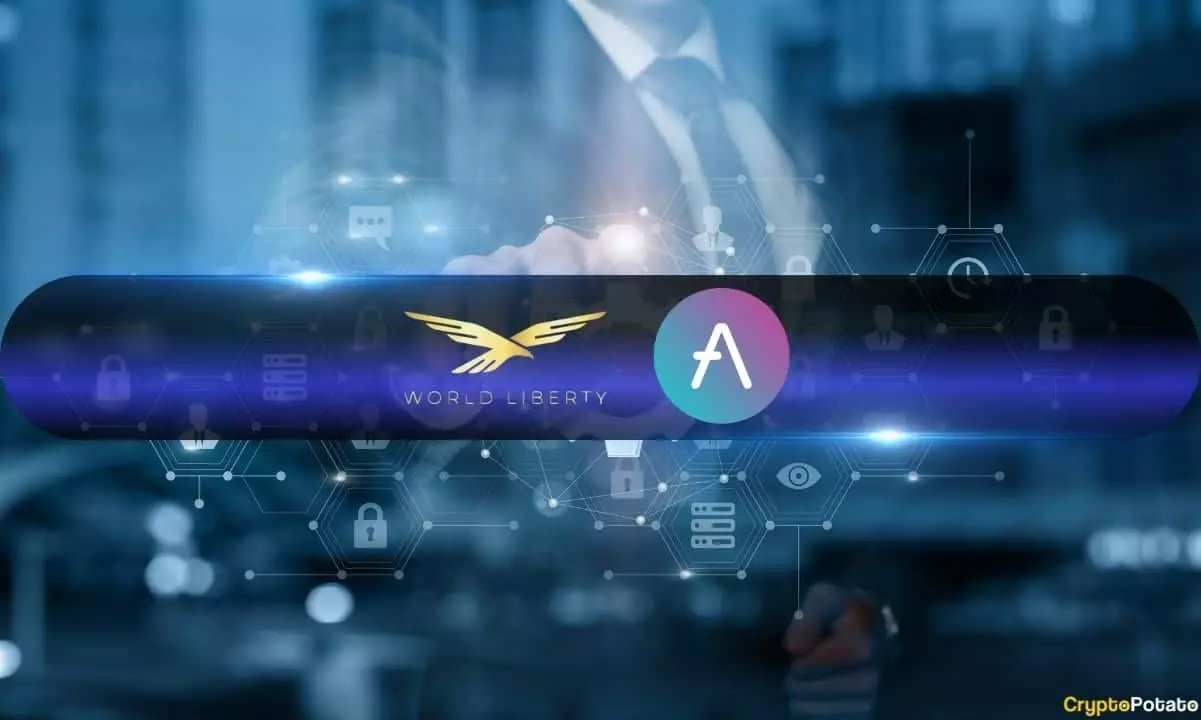In a surprising move that intertwines the worlds of politics and cryptocurrency, Donald Trump alongside key associates has introduced World Liberty Financial (WLF), a venture aiming to make significant strides within the decentralized finance (DeFi) landscape. Recently, WLF presented a proposal to Aave, a prominent DeFi platform, which highlights its ambition to create a distinct layer of services within the existing framework. This proposed collaboration underscores an intriguing intersection of traditional finance and the burgeoning crypto sector.
The crux of WLF’s proposal involves leveraging Aave’s robust infrastructure to facilitate its cryptocurrency offerings. By establishing a partnership, WLF intends to provide various financial services that capitalize on Aave’s existing capabilities. In a bid to make the collaboration mutually beneficial, WLF proposes that AaveDAO obtain 20% of the protocol fees generated from its services, alongside a stake of 7% in WLFI, the governance token designed for WLF. This arrangement raises questions about governance and revenue sharing models typically seen within DeFi ecosystems and how they might evolve with the integration of notable traditional figures like Trump.
Central to the WLF proposal is its unique tokenomics structure, particularly concerning its governance token, WLFI. An intriguing aspect of the proposal is that WLFI tokens will be distributed as rewards to users engaged in liquidity pools. However, there is a contentious stipulation regarding the non-transferability of these tokens, sparking dialogue within the community about the management and custodial strategies that AaveDAO will employ. The proposal stipulates initial deposits in popular cryptocurrencies like Ethereum and Wrapped Bitcoin, providing notable flexibility for participants while also fostering the liquidity needed to support its ecosystem.
World Liberty is not just presenting another DeFi service; it is strategically positioning itself to attract less experienced users, thereby attempting to demystify the often daunting complexities associated with existing DeFi platforms. With a vision to expand its offerings and mainstream accessibility, WLF seeks to integrate traditional financial methodologies while promoting a user-friendly interface. This focus on accessibility could help broaden the DeFi user base, specifically among those who previously refrained from participating due to technological barriers.
Looking ahead, WLF plans to incorporate additional assets beyond the current Ethereum-centric offerings, thereby expanding its reach in the financial ecosystem. The initiative has already opened whitelist opportunities for accredited investors to buy WLFI tokens, operated under SEC regulations. Despite these initial limitations, the team’s commitment to democratizing access to their platform reflects an ambitious aim to engage a wider audience in the future.
As the WLF proposal circulates within the AaveDAO community for consideration, it remains to be seen how stakeholders will respond to the intersections of traditional finance and emerging technology epitomized by Trump’s project. While the potential for innovation is significant, the underlying concerns about token management, regulatory compliance, and user experience must be thoroughly examined. The outcome of this proposal could very well set a precedent for similar ventures in the evolving DeFi landscape, bridging the gap between established financial practices and cutting-edge cryptocurrency solutions.
















Leave a Reply